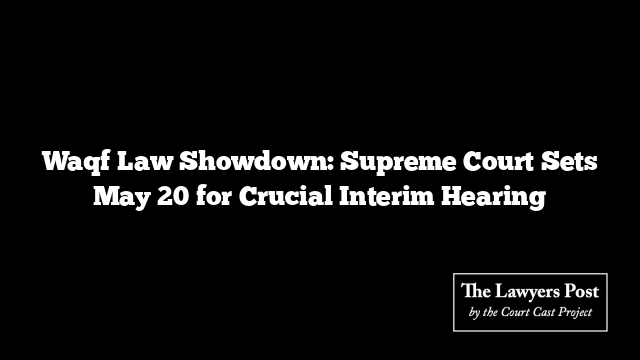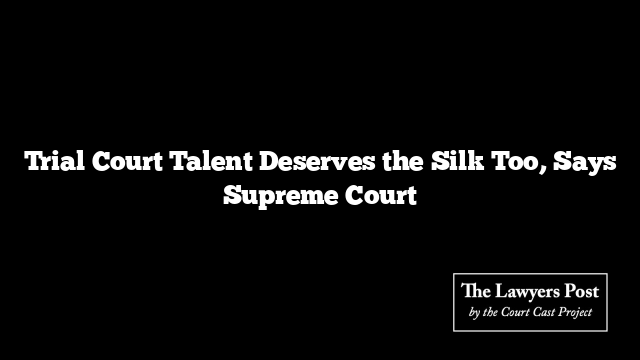In a case charged with constitutional tension and political undertones, the Supreme Court will on May 20 take up the petitions challenging the Waqf (Amendment) Act, 2025—but only to decide whether a temporary halt is needed.
With the legal storm brewing, a bench led by Chief Justice BR Gavai and Justice AG Masih clarified that it will spend that day hearing arguments strictly on interim relief. The central government’s earlier assurance—that it won’t enforce the contested provisions of the new law for now—will remain intact.
Three key flashpoints are under the microscope: the deletion of “waqf by user” from legal recognition, the inclusion of non-Muslims in Waqf governing bodies, and the categorization of government land as waqf property. Each is a tinderbox of legal, religious, and administrative implications.
The Act—passed at high speed in Parliament early last month and signed off days later—has drawn fierce resistance from various quarters, notably Muslim Members of Parliament and community leaders. Their argument: the amendments single out Muslim religious endowments, undermining constitutionally protected rights to manage religious affairs.
But a countercurrent is flowing in from six BJP-ruled states—Haryana, Maharashtra, Madhya Pradesh, Rajasthan, Chhattisgarh, and Assam—which have rushed to back the law. These states claim the amendment is necessary to shield both private and public land from arbitrary waqf claims, many of which allegedly lack formal documentation but have stood uncontested for centuries.
At the heart of the legal contest lies the government’s decision to strip “waqf by user”—a doctrine that historically protected properties long used for religious purposes—from the Act’s definitions. Critics say this effectively severs the legal identity of countless mosques, graveyards, and community spaces that never had formal waqf deeds but have existed as such for generations.
The Centre isn’t backing down. In its defense, it cited a sharp spike—over 116%—in waqf land registrations after the last amendment in 2013, arguing this expansion came at the cost of both private ownership rights and government land integrity. The goal of the 2025 changes, it says, is not to erase religious dedication, but to require due process and proper registration.
As for the controversy around appointing non-Muslims to Waqf Boards and Councils, the Centre insists their numbers are negligible and their presence symbolic—meant to promote inclusivity, not undermine Article 26 rights.
A previous recusal by former Chief Justice Sanjiv Khanna had stalled the matter temporarily, but with the issue now firmly on the docket, May 20 is set to become a defining moment in the battle over faith, land, and legal boundaries in modern India.





